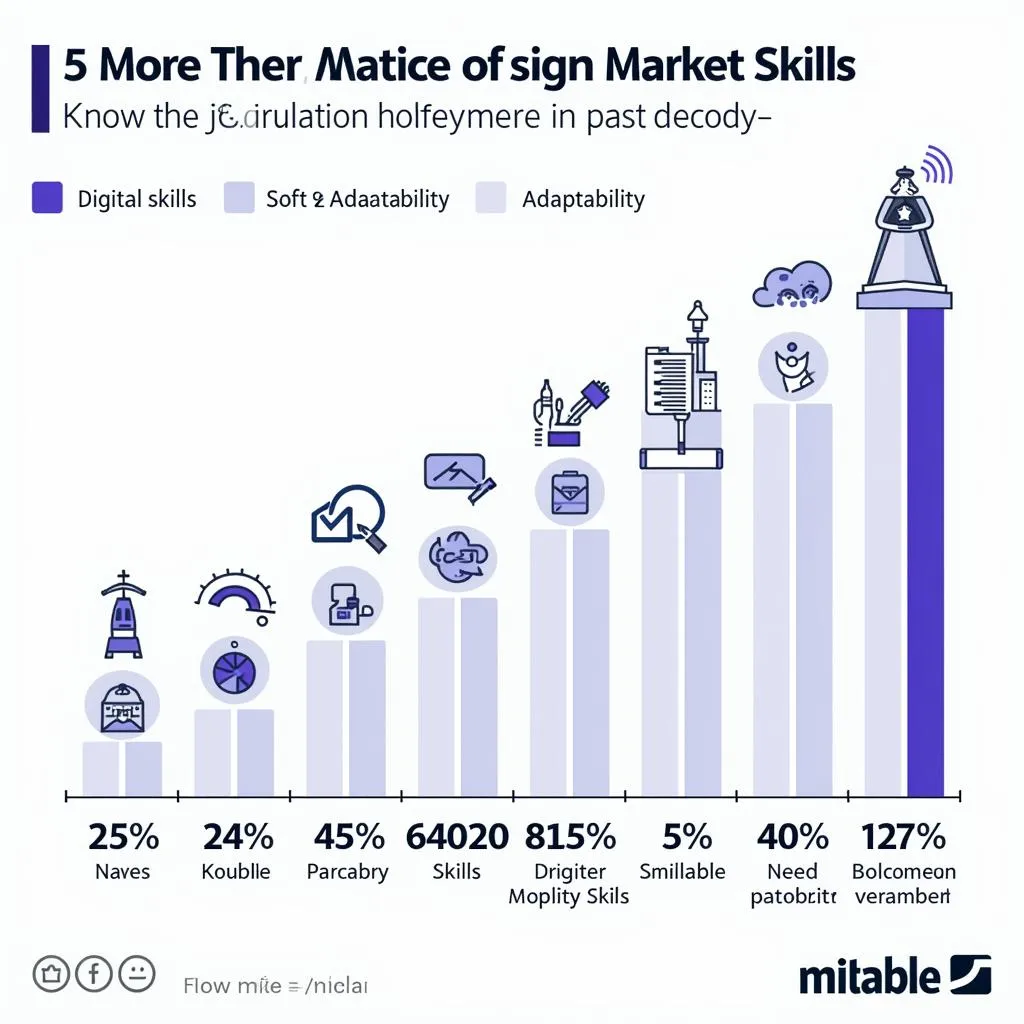The topic of describing a skill learned during education is a common theme in IELTS Speaking tests. It allows examiners to assess candidates’ ability to reflect on their personal experiences and articulate them clearly. This topic has appeared frequently in past exams and is likely to remain relevant in future tests due to its universal applicability.
Part 1: Introduction and Interview
In this section, the examiner may ask questions related to your educational background and skills. Here are some potential questions and sample answers:
- What was your favorite subject in school?
- Do you think schools teach enough practical skills?
- How do you think education has changed since your parents’ generation?
Let’s focus on question 2:
Examiner: Do you think schools teach enough practical skills?
Sample answer (Band 6-7):
“I believe schools are making efforts to teach practical skills, but there’s still room for improvement. In my experience, we learned some useful skills like basic computer programming and public speaking. However, I think schools could focus more on real-world applications of what we learn in class.”
Sample answer (Band 8-9):
“While schools have made significant strides in incorporating practical skills into their curricula, I believe there’s still a considerable gap between academic knowledge and real-world application. In my view, educational institutions could benefit from a more comprehensive approach that integrates hands-on experiences, internships, and project-based learning across various subjects. This would better equip students with the transferable skills necessary for navigating the complexities of modern professional environments.”
Part 2: Long Turn
Cue Card:
Describe a skill you learned during your education that has been useful to you.
You should say:
- What the skill is
- When and where you learned it
- How you learned it
- And explain why this skill has been useful to you
Sample answer (Band 6-7):
“The skill I want to talk about is critical thinking, which I learned during my high school years. I was fortunate to have a teacher who emphasized the importance of analyzing information rather than just memorizing facts.
We learned this skill through various exercises, such as debating current events and analyzing literature from different perspectives. The teacher would often play devil’s advocate, challenging our assumptions and encouraging us to consider multiple viewpoints.
This skill has been incredibly useful in my life, both academically and professionally. It has helped me to make better decisions by carefully evaluating information and considering different options. In my current job, I often need to solve complex problems, and critical thinking allows me to approach these challenges more effectively.
Overall, I’m grateful for having learned this skill during my education, as it has truly shaped the way I approach life and work.”
Sample answer (Band 8-9):
“I’d like to discuss a pivotal skill I acquired during my educational journey: advanced research methodology. This multifaceted competency was cultivated during my undergraduate years at university, specifically within my final year of study.
The acquisition of this skill was a gradual process, meticulously guided by our department’s research professor. We were immersed in a comprehensive curriculum that covered everything from formulating research questions and designing experiments to analyzing data using sophisticated statistical tools.
The learning process was intensively hands-on. We were tasked with conducting original research projects, which involved literature reviews, fieldwork, and laboratory experiments. This practical application was supplemented by rigorous peer review sessions and one-on-one mentoring with faculty members.
This skill has proven to be invaluable in my professional life. It has equipped me with a systematic approach to problem-solving, allowing me to tackle complex issues with a structured methodology. In my current role in market analysis, I frequently leverage these research skills to conduct in-depth market studies and consumer behavior analyses.
Moreover, the ability to critically evaluate information and discern credible sources has been crucial in this era of information overload. It’s enabled me to make informed decisions based on solid evidence, whether in professional contexts or personal matters.
In essence, mastering advanced research methodology has not only enhanced my professional capabilities but has also cultivated a more analytical mindset, profoundly influencing how I perceive and interact with the world around me.”
Follow-up questions:
- How has this skill helped you in your personal life?
- Do you think this skill should be taught more widely in schools?
Sample answer for question 1 (Band 8-9):
“The research methodology skills I acquired have had a profound impact on my personal life. They’ve honed my critical thinking abilities, allowing me to approach personal decisions with a more analytical mindset. For instance, when making significant life choices, such as selecting a new city to live in, I find myself systematically gathering and evaluating information, much like I would in a research project. This methodical approach has led to more informed and confident decision-making in various aspects of my life, from financial planning to personal relationships. Moreover, these skills have fostered a sense of intellectual curiosity, encouraging me to delve deeper into topics of personal interest, thereby enriching my understanding of the world around me.”
Part 3: Two-way Discussion
Examiner: How do you think the skills needed in the job market have changed in recent years?
Sample answer (Band 6-7):
“I think the job market has changed quite a lot in recent years. There’s more emphasis on technology skills now, like coding and digital marketing. Soft skills like communication and teamwork are also more important. Companies seem to want employees who can adapt quickly to new situations and learn new things on the job.”
Sample answer (Band 8-9):
“The landscape of skills required in the contemporary job market has undergone a significant transformation in recent years, primarily driven by rapid technological advancements and evolving business paradigms. There’s been a notable shift towards valuing digital literacy and technological proficiency across virtually all sectors. Skills such as data analysis, artificial intelligence, and cybersecurity have moved from niche specialties to essential competencies in many fields.
Concurrently, there’s been an increased emphasis on soft skills and emotional intelligence. The ability to collaborate effectively in diverse, often remote teams, adapt swiftly to changing circumstances, and communicate complex ideas clearly has become paramount. We’re seeing a growing demand for individuals who can bridge the gap between technical expertise and interpersonal effectiveness.
Moreover, the concept of lifelong learning has gained traction, with employers valuing candidates who demonstrate an ability to continuously upskill and stay abreast of industry trends. This reflects the rapidly evolving nature of many industries and the need for a workforce that can pivot and innovate in response to new challenges.
Interestingly, there’s also been a resurgence in the appreciation of critical thinking and problem-solving skills. As automation takes over more routine tasks, the human workforce is increasingly expected to tackle complex, non-linear problems that require creative solutions and strategic thinking.
In essence, the modern job market seems to be gravitating towards a blend of technical acumen, social intelligence, and cognitive flexibility, reflecting the complex and interconnected nature of our global economy.”
 Evolution of job market skills over time
Evolution of job market skills over time
Key Vocabulary and Phrases for High Scores
-
Pivotal (adjective) /ˈpɪv.ə.təl/ – of crucial importance in relation to the development or success of something else
Example: Learning a foreign language was a pivotal moment in my career. -
Multifaceted (adjective) /ˌmʌl.tiˈfæs.ɪ.tɪd/ – having many different aspects or features
Example: Critical thinking is a multifaceted skill that involves analysis, evaluation, and synthesis of information. -
To cultivate (verb) /ˈkʌl.tɪ.veɪt/ – to try to develop or improve
Example: The university program aimed to cultivate leadership skills in its students. -
Meticulously (adverb) /məˈtɪk.jə.ləs.li/ – in a way that shows great attention to detail; very carefully and precisely
Example: The research methodology was meticulously explained to ensure accurate results. -
To leverage (verb) /ˈlev.ər.ɪdʒ/ – to use something to maximum advantage
Example: I leveraged my networking skills to secure a position in a top firm. -
Invaluable (adjective) /ɪnˈvæl.ju.ə.bəl/ – extremely useful; indispensable
Example: The mentorship I received during my internship proved invaluable in shaping my career path.
Using these words and phrases effectively can significantly enhance the sophistication and precision of your responses in the IELTS Speaking test.
Examiner’s Advice
To achieve a high score in the IELTS Speaking test, particularly when describing skills learned during education:
-
Practice regularly: Engage in daily speaking exercises, focusing on articulating your thoughts clearly and coherently.
-
Expand your vocabulary: Incorporate advanced vocabulary and idiomatic expressions relevant to education and skill development.
-
Develop your ideas: Don’t just list facts; explain your thoughts in detail and provide relevant examples.
-
Work on fluency: Aim for smooth delivery without long pauses. Use linking words to connect your ideas.
-
Improve pronunciation: Pay attention to word stress and intonation. Record yourself speaking and analyze areas for improvement.
-
Stay informed: Keep up with current educational trends and debates to provide insightful answers, especially in Part 3.
-
Be reflective: When discussing skills, don’t just describe them, but also analyze their impact on your life and future prospects.
Remember, the key to success in the IELTS Speaking test is not just about what you say, but how you say it. Confidence, clarity, and the ability to express complex ideas in a structured manner are crucial for achieving a high band score.
 IELTS Speaking practice session
IELTS Speaking practice session
By following these guidelines and consistently practicing, you can describe a challenging experience that you handled well in your IELTS Speaking test, showcasing the valuable skills you’ve acquired during your education. Remember, the ability to effectively communicate about your educational experiences and acquired skills is not just crucial for the IELTS test, but also for future academic and professional endeavors. As you prepare, you might also find it helpful to describe an online video you watched that taught you something new, as this can provide additional practice in articulating learning experiences.


